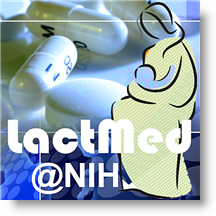 Whether you are currently pregnant or whether you are breastfeeding a child, you need to think carefully about all herbs and medications you put into your body, because you're also putting it into your baby. Medications and herbs are more complicated when you are pregnant, because baby gets them in a different formulation than you do. When you are pregnant, your blood meets baby's blood at the placenta and nutrients and medications cross from you into baby. Some medications easily cross the placenta into baby's blood, and some do not. If a medication crosses easily, it might be overwhelming on baby's developing kidneys and liver to process the medication. This is why it is so important to have a conversation with your provider prior to taking any herbal or pharmaceutical medication. Breastfeeding is a different story, because breast milk is made differently. You make milk from nutrients and materials in your blood supply, which could possibly include herbs and medications. However, now baby will be getting this through baby's stomach lining and intestines rather than directly into the blood via the placenta, so the chart of medications is different. Is the herb or medication easily absorbed via the digestive tract? Is it a medication that is given to infants? And at what level will it appear in the baby? If the last two paragraphs have made you throw your arms up in the air and say, "Forget it!" take another breath. The excellent news about breastfeeding and medications is that there is a FREE app that is updated daily with information learned through clinical trials and reports from mamas and babies, and this is a great resource for you and your physician. Even if you are still pregnant, it is worth getting this app and looking at all of the medications your currently take to see if there is a better alternative while breastfeeding. LactMed is free and updated every time there is new information. It includes the safety information, guidelines, links to research, and possible alternatives for almost every single medication out there. It should be used as a resource, not gospel, so be sure to use it as a supplement to a conversation with your provider. The other great news: there are very few medications which are considered dangerous enough that you should stop breastfeeding. Others may recommend taking the medication an hour or two prior to breastfeeding. Your physician may not be up to date on the most current research, so if they advise cessation of breastfeeding due to a medication, it is worth consulting this app and talking about alternatives. If you are faced with taking a medication that you must take that is incompatible with breastfeeding, talk with your physician and an IBCLC about the possibility of breastfeeding once the course of medication has completed. You may be able to pump and discard your milk for the brief stint that you need to take the medication and then return to breastfeeding later on. Simply stopping will make restarting much more difficult in the future, so discussing your best options and your breastfeeding goals with an IBCLC is critical! What is an IBCLC? Check out my post The Breast Experts
0 Comments
Leave a Reply. |
About meI'm one of those people who loves making your life easier (and I believe in you). I am an experienced registered prenatal yoga teacher and a lactation educator. Want more? My monthly newsletter might be for you.
Archives
April 2014
Categories
All
|
 RSS Feed
RSS Feed
